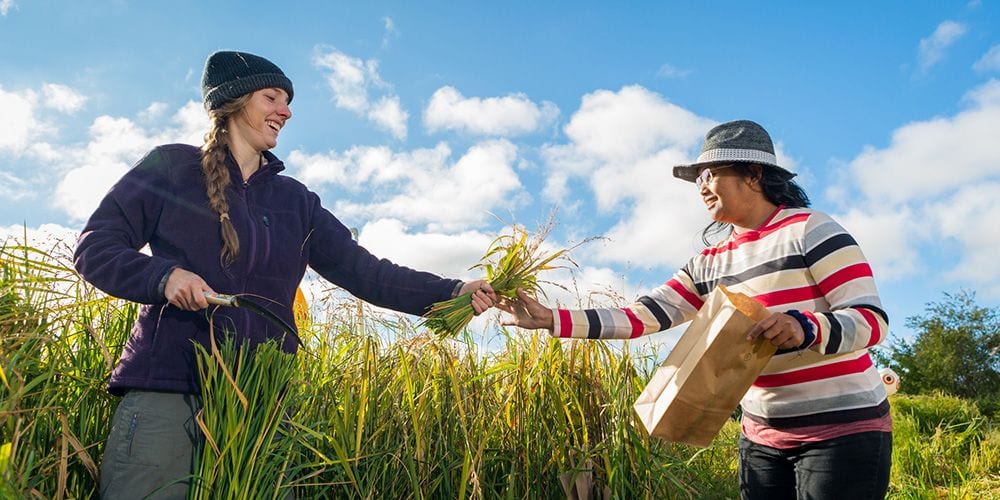U of A Researchers Lead Consortium Studying Genetics of Heat-Tolerant Rice

Research associate Sara Yingling (left) and graduate student Yheni Dwiningsih (right) gather rice to study its genetics.
U of A researchers are working to identify the natural genetic variation in rice that allows the plant to produce high-quality grain in an environment of rising temperatures.
The U of A leads a consortium of four universities that recently received $4.65 million from the National Science Foundation to support their work. The team is studying the genetics of more than 400 rice varieties collected from around the world.
“Environmental stresses such as high temperatures that occur seasonally or increase annually limit cereal crop production, the stability of which is important for global food production,” said Andy Pereira, professor of crop, soil and environmental science in the University of Arkansas System Division of Agriculture and the Dale Bumpers College of Agricultural, Food and Life Sciences. “The major emerging environmental stress to U.S. rice production is the increase in night temperatures, which reduces grain yield and quality and decreases market value.”
To address this issue, the team of researchers, led by Pereira, are studying the characteristics and genetics of the different rice varieties. Working with colleagues at the University of Arkansas at Little Rock, Oklahoma State University and Louisiana State University, the researchers will compare the yield and quality of two groups of rice, one grown grown under heat stress and the other under ambient temperature.
By comparing the two groups of plants, the researchers will be able to identify varieties of rice that produce high quality grains in spite of increased temperatures. This information will be used to map the genomes of these varieties in order to identify the gene sequences and expressions that give the plants this heat tolerance advantage. The researchers will also use gene-editing techniques to validate their findings. With this information, they can make specific recommendations to plant breeders and farmers to help them.



